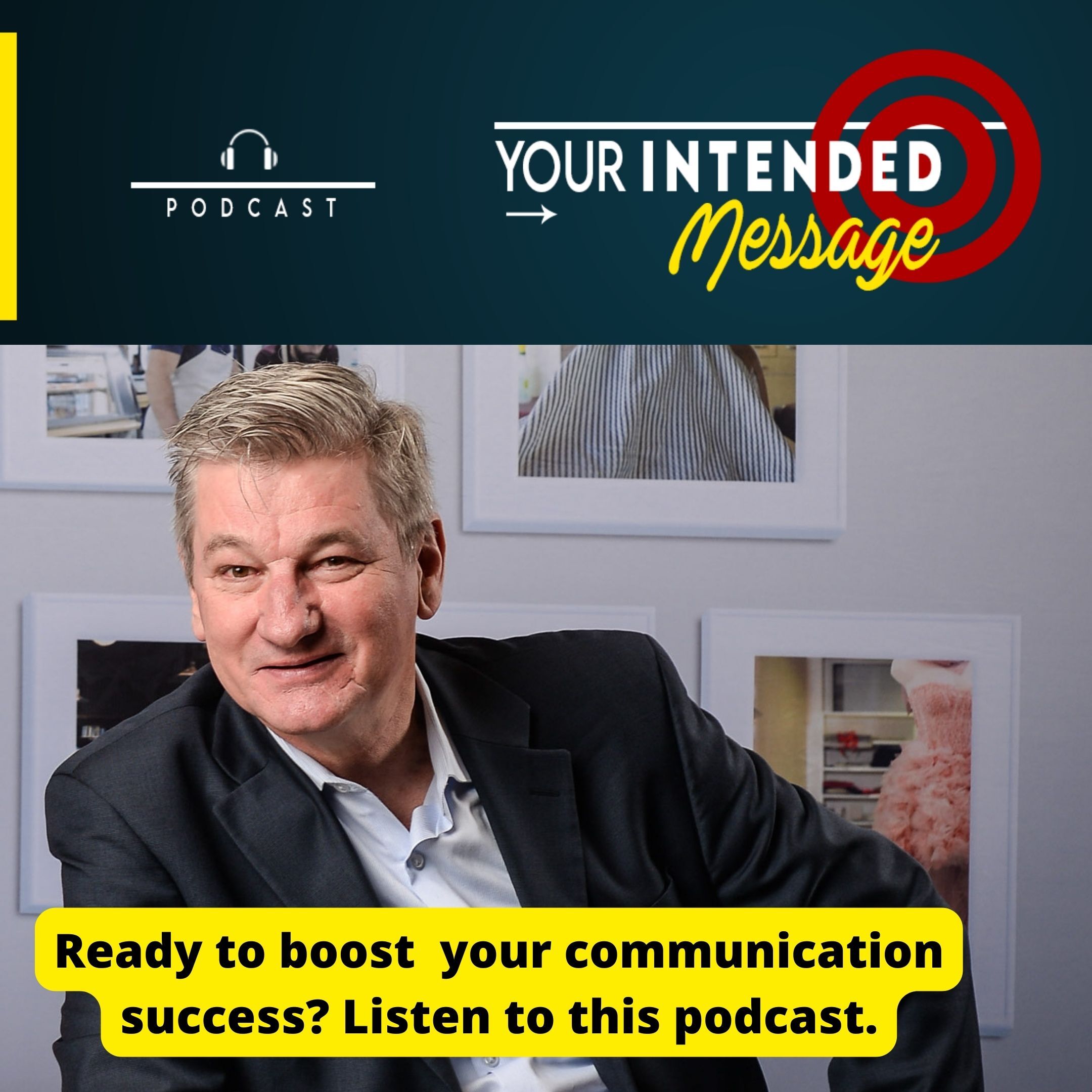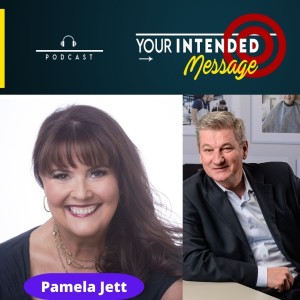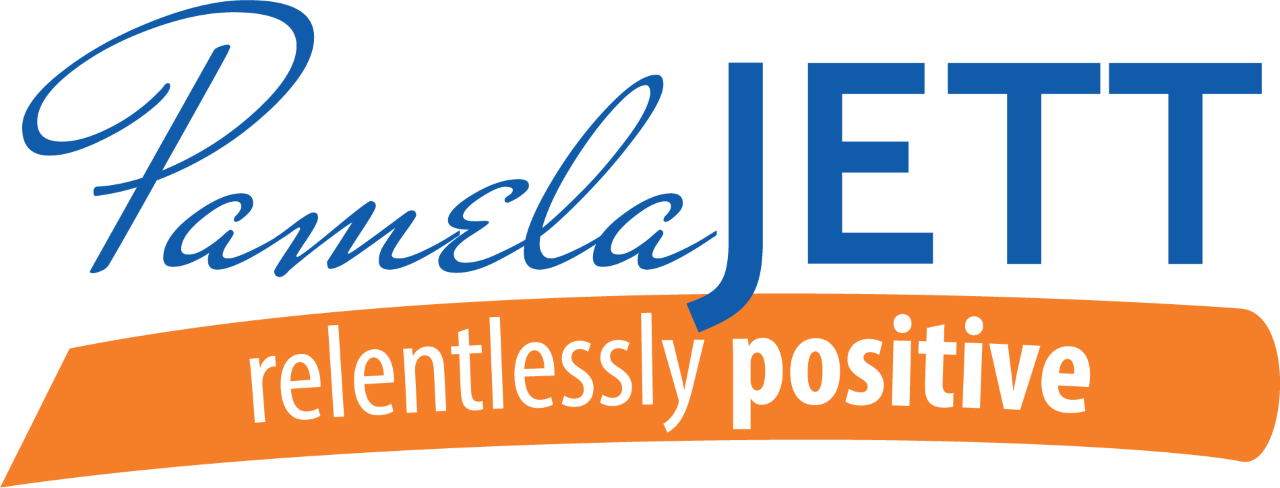
14.6K
Downloads
257
Episodes
Better communication skills will advance your career and business. Are you ready to enhance your understanding and results from better communication? Listen to learn how to deliver Your Intended Message. Are you willing to cross-examine communication from various perspectives? Would you like to deliver your intended message more effectively? Listen to Your Intended Message to gain a powerful advantage in your ability to convey your message to your audience, team, clients or marketplace. Learn from the mistakes and success of communication experts from around the world from different scenarios. Imagine what that means to you when you improve the success of your next conversation, presentation or message.
Episodes

Thursday Sep 01, 2022
Communicate in the Positive Instead of the Negative: Pamela Jett
Thursday Sep 01, 2022
Thursday Sep 01, 2022
How to be communicate to your team in a positive way
How to tame the negative thoughts in your head that can sabotage your success
Pamela Jett is a leadership and communication skills expert who has been working with leaders for almost three decades to them communicate, lead and succeed.
Episode 110 (Pamela is based in Arizona)
In this conversation with Pamela Jett we explore:
- The critical difference between being relentlessly positive instead of pursing happiness (happiness is an unrealistic goal)
- Words to chose and words to lose (stop sabotaging your intended message)
- How to stop the negative ranting in your head
- The three principles of positive communication
- Situational life-saving phrases to escape emotional traps
- How to communicate as an effective leader in any situation
About Pamela Jett:
As an internationally recognized communication and leadership expert, speaker, author, and executive advisor, Pamela Jett works with professionals to better understand that choosing to be “Relentlessly Positive” even in difficult situations isn’t naïve… it’s leadership.
After graduating from San Diego State University with a degree in Speech Communication and receiving recognition as one of the top 20 speech and debate competitors in the country, Pamela went on to earn her master’s degree in Communication. It was while pursuing her Ph.D. at the University of Utah that her love of teaching adults powerful success skills was kindled.
Learn more about Pamela Jett and her programs at her website www.PamelaJett.com
Learn more about the turnkey leadership academy here.
No charge to check out this coaching assessment quiz.
-----
Excerpts from this conversation with Pamela Jett:
So I believe in instead of chasing happiness, I believe and fostering relentless positivity or choosing to be relentlessly positive. Because when I am relentlessly positive, my likelihood of having happiness increases. So in many ways, relentlessly positive attitude is one of the key drivers of happiness. And relentless positivity is all about our mindset.
-----
03:39
Okay, so we just had a fire in the plant. How can I be positive about that?
Well, here's the key.
Relentlessly positive communicators focus not on the past, they focus on the future.
So they would acknowledge the devastation or the challenge. So a great leader would say something like, we have just had a very devastating fire. And I am confident that we as a team can put together a fast recovery plan so that we can get back on track in a timely fashion.
So there are a couple of keys to that.
The first is acknowledging that something bad happened because if you're a leader after a devastating fire in a plant, and you go in and you say hey, it's gonna be a great day, and you use that rah rah, cheerleader, kind of happy clappy positivity, that doesn't work.
But if I say, yes, we've had something bad happen, we've had this bad fire. And so the word and is a word to choose the word but is a word to lose.
Because if I said, Oh, we've had this devastating fire, but it really kind of negates that empathy piece that I just gave as a leader.
And if I don't acknowledge that this was tough, everybody's gonna think that I am as a leader, completely delusional that I don't have any empathy that I have no feeling for what they're going through.
But if I say, hey, this was a really, really devastating fire, and I'm confident that we as a team can put together a great recovery plan, I use the and it doesn't negate my empathy.
And then I'm using another principle of relentlessly positive communication, which is the future focus.
And I'm confident we can put together a great recovery plan. So it gets us working on solutions, not sitting there moaning and groaning over the problem.
Now, that's a very simplistic example. That is how relentlessly positive communication differs from that rah rah cheerleader, have a good attitude, always be positive.
Look, on the bright side, it's very strategic. I'm doing it intentionally to build trust with my team. And I'm doing it to also help move forward into problem solving.
-----
But if I just accept, or even simply say, Wow, that was interesting, which is a neutral statement. Wow. That was interesting.
-----
16:07
Feelings drive decisions, not logic, not reason.
And I know, when people are listening to this, they might be thinking, wow, that's not true. I decided to buy my car because I researched and I did and yes, you do that, and you have your data and your logic and rationale to back it up.
And some people have the space between the feeling and their decision is just so minuet that they can't be they don't recognise that they're gathering those facts.
For some of us, Hey, I know I've got a feeling. And I am aware now that I'm gathering facts, and I've made my decision, neither way is right or wrong.
It's just some people make their decisions so differently, and they gather their facts so quickly, they can't really recognise that they went through a feeling phase because they aren't really thinking about their feelings, because feelings aren't thinking they're feeling.
So every decision we make is starts out as a feeling person that's been proven, by the way our brains architecture works, it's just how our brains are.
And how this impacts us as humans is obviously on an individual level, I need to be aware of my feelings, because that impacts the decisions I make.
I also know that as a leader, if I want to have a team that's engaged, if I want to have a team that thinks that their work is meaningful and important, and decide to come in with a problem solving attitude, that they come in, ready to work, and to be focused and to be collaborative, and all those decisions we want our team members to make.
-----
Your Intended Message is the podcast about how you can boost your career and business success by improving your communication skills. We’ll examine the aspects of how we communicate one-to-one, one to few and one to many – plus that important conversation, one to self.
In these interviews we will explore presentation skills, public speaking, conversation, persuasion, negotiation, sales conversations, marketing, team meetings, social media, branding, self talk and more.
Your host is George Torok
George is a specialist in executive communication skills. That includes conversation and presentation. He’s fascinated by way we communicate and influence behaviors. He delivers training and coaching programs to help leaders and promising professionals deliver the intended message for greater success.
Connect with George
www.SpeechCoachforExecutives.com
https://www.linkedin.com/in/georgetorokpresentations/
https://www.youtube.com/user/presentationskills
https://www.instagram.com/georgetorok/
For weekly tips to improve your presentations visit


Comments (0)
To leave or reply to comments, please download free Podbean or
No Comments
To leave or reply to comments,
please download free Podbean App.